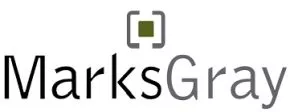- within Intellectual Property topic(s)
- in United States
- within Intellectual Property, Technology, Media, Telecoms, IT and Entertainment topic(s)
- with readers working within the Retail & Leisure industries
Musicians and fashion houses do not often cross paths in the courtroom, but that is exactly what is happening in a newly filed lawsuit where luxury brand Chrome Hearts is taking on Neil Young over the name of his new backing band, "Neil Young and The Chrome Hearts."
What seems like a creative choice on Young's part has triggered a serious trademark dispute, raising important questions about how names, brands, and consumer perceptions can collide under intellectual property law.
Let us take a look at the main elements at play in the case.
The Lawsuit at a Glance
In September, Chrome Hearts filed a lawsuit in federal court after Neil Young began performing with a backing band called "Neil Young and The Chrome Hearts." The brand alleges that Young's use of the name infringes on their longstanding trademarks featuring CHROME HEARTS, which have been used for decades in connection with their luxury clothing, jewelry, and accessories.
The issue is not just about the stage name. Chrome Hearts argues that concert merchandise and promotional materials using "The Chrome Hearts" will confuse consumers into thinking there is a connection or endorsement between the band and the brand. They also claim that unauthorized apparel has already surfaced online blending the two identities.
For these reasons, Chrome Hearts is asking the court to block Young from using the name and to award damages.
Why Chrome Hearts (the Company) May Actually Have a Case
To those outside the legal world, this may sound like a business trying to make headlines by going after a rock-and-roll icon. However, the case underscores several important principles of trademark law that apply to anyone who builds a brand.
Related Goods or Services
Chrome Hearts (the company) is known for luxury clothing, jewelry, and accessories. Neil Young's backing band The Chrome Hearts... well, they play music. How can there be confusion?
Artists often think of a band name as purely artistic expression, but when that name appears on t-shirts, posters, and hats, it enters the same marketplace where brands like Chrome Hearts operate. This makes the overlap real.
Established Rights
Chrome Hearts has been selling under its mark since the early 1990s. Longstanding use and recognition make it more difficult for later users, even high-profile ones, to argue that they are not infringing.
Intent Versus Consumer Perception
Young reportedly drew the phrase "Chrome Hearts" from lyrics he wrote in the 1970s. That history may feel compelling, but trademark law focuses less on intent and more on the effect on consumers.
If the public could reasonably think Chrome Hearts sponsors or endorses the band, the law favors the trademark owner.
What This Case Should Make You Consider
Here are a few lessons business owners, entrepreneurs, and creators should take from this case:
Do a clearance search before using a name.Even if the name feels original or personal, check for existing marks in overlapping categories.
Think ahead about merchandise. If your brand could one day appear on products, consider those classes when securing rights. Again, the above case seems like fashion vs. music, but when you get right down to it, both entities are creating fashion products.
Monitor and enforce consistently. Brands that do not act risk weakening their rights.
Do not assume your personal history with a phrase shields you. Prior commercial use usually carries more weight than artistic backstory.
What will ultimately happen in the Chrome Hearts vs. Neil Young dispute is an open question. But regardless of that outcome, it serves as a reminder that trademarks are about consumer perception and marketplace overlap, not just intent or creativity.
Whether you are naming a company, a band, or a product line, the smartest move is to clear and secure your rights up front. That step is far less costly than facing a federal lawsuit later.
Want help making sure you are dotting your 'i's and crossing your 't's when coming up with a name?
The content of this article is intended to provide a general guide to the subject matter. Specialist advice should be sought about your specific circumstances.


